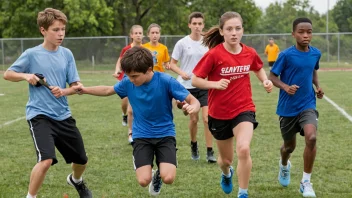Golf is often described as a mental game, where the player's mindset and self-awareness can greatly influence performance. As players strive to lower their scores and enhance their skills, the concept of self-reflection emerges as a critical tool for improvement. Self-reflection allows golfers to evaluate their strengths and weaknesses, understand their emotional responses on the course, and refine their strategies for better outcomes. Through regular introspection, golfers can identify areas that need work, set realistic goals, and develop plans to achieve them. This article explores the significance of self-reflection in golf, the methods to practice it effectively, and how it contributes to both skill enhancement and mental resilience.
Understanding Self-Reflection in Golf
Self-reflection is the process of examining one's thoughts, feelings, and behaviors to gain insight and foster personal growth. In golf, this means taking the time to analyze each round, considering not just the technical aspects of the game but also the mental and emotional factors at play. A golfer might ask themselves questions like, "What went well today?" or "What could I have done differently?" This practice encourages a deeper understanding of one's playing style and helps in recognizing patterns that can be addressed in future practice sessions.
The Role of Self-Reflection in Skill Development
Incorporating self-reflection into practice routines can significantly enhance skill development. By regularly reflecting on performance, golfers can pinpoint specific areas to work on, whether it's their swing mechanics, putting accuracy, or course management strategies. For instance, after a round, a player might note that they struggled with their approach shots. With this insight, they can focus their next practice session on improving their iron play, experimenting with different techniques, and seeking feedback from coaches or more experienced players.
Enhancing Mental Resilience
Golf can be a frustrating sport, often marked by highs and lows that can impact a player’s confidence and mental state. Self-reflection serves as a tool for building mental resilience. By reflecting on challenging moments during a round—such as a missed putt or a bad drive—players can analyze their reactions and develop healthier coping strategies. Instead of dwelling on mistakes, golfers can learn to view them as opportunities for growth. This shift in perspective not only aids in improving performance but also fosters a more positive mindset, making the game more enjoyable.
Methods for Practicing Self-Reflection
There are various methods golfers can employ to engage in self-reflection effectively. Here are some practical approaches:
- Journaling: Keeping a golf journal allows players to document their thoughts and feelings after each round. They can note down key takeaways, areas of improvement, and even successes, creating a comprehensive record of their golfing journey.
- Video Analysis: Recording practice sessions or rounds can provide valuable visual feedback. By watching their swings and shot selections, players can identify technical flaws and make necessary adjustments.
- Mental Imagery: Visualization techniques can help golfers mentally rehearse their performance and reflect on their emotional responses to various scenarios on the course.
- Peer Feedback: Engaging with fellow golfers or coaches for feedback can provide different perspectives and insights that may not be evident through self-reflection alone.
Setting Goals Based on Reflection
Once a player has engaged in self-reflection, the next step is to set actionable goals. These goals should be specific, measurable, achievable, relevant, and time-bound (SMART). For example, if a golfer realizes that their putting needs improvement, they can set a goal to practice putting drills for 30 minutes, three times a week over the next month. With clear objectives in place, golfers can track their progress and adjust their practice as necessary, ensuring that their efforts are directed towards genuine improvement.
Self-Reflection and Course Management
Self-reflection also plays a crucial role in course management. Understanding one’s strengths and weaknesses allows players to make better strategic decisions during a round. For instance, a golfer who reflects on their shot accuracy may choose to play conservatively on certain holes, opting for safer shots rather than risky plays that could lead to trouble. This strategic approach not only improves scores but also enhances overall game management skills.
Conclusion
In conclusion, self-reflection is an invaluable practice for golfers seeking to improve their game. By taking the time to evaluate performance, set goals, and develop a positive mindset, players can enhance their skills while building mental resilience. Whether through journaling, video analysis, or peer feedback, golfers can gain insights that lead to meaningful improvements on the course. Ultimately, the journey of self-reflection not only contributes to better performance but also deepens the love for the game, making each round a stepping stone towards personal growth and achievement.






